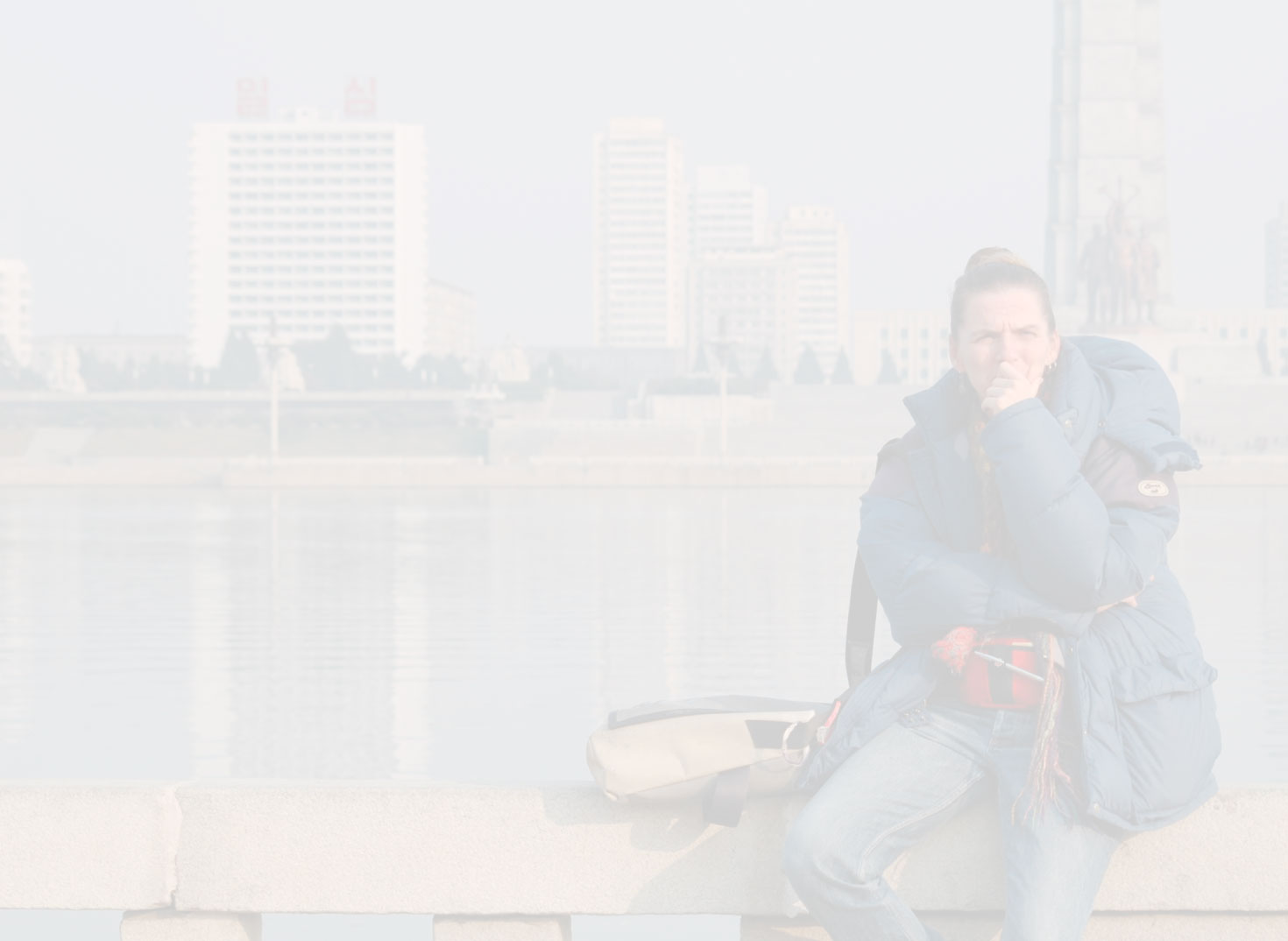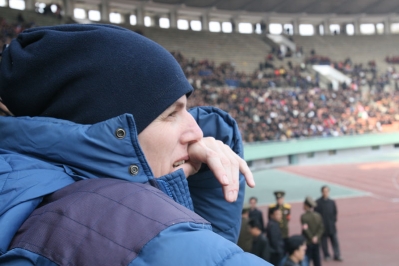I'd never seen anything like Pyongyang before.
From its streets devoid of billboards, shop displays, cafés or any of the otherwise omnipresent brand names and logos, punctuated instead on every corner by inscriptions and propaganda posters with the latest slogans, to the wide, multi-lane boulevards with hardly a car on them, spotlessly clean and serenely calm, to the passersby clad not in global fashion but in military gray-brown-green or candy-coloured butterfly dresses, “tsogori”, the traditional costume of Korean women. Not only that, but it is impossible to move about freely in the city: the moment you arrive at the airport you are met by a guide who, except when you are at your hotel, never leaves your side until you are back on the plane heading home. Like every North Korean, your guide wears a lapel badge bearing the image of either Kim Il Sung or Kim Jong Il, and every second sentence she or he utters is in praise of the “Great Leader,” who is responsible for all the wonderful things you are being shown during your visit. This experience came as a complete shock and made me wonder how things had come to be the way they were there and alternately how they had ended up the way they were “back home”.
The decision to do a portrait of female footballers probably arose out of the desire to juxtapose this jarring and foreign situation with a familiar point of reference: young women who are eager to make a difference in their lives but who keep running up against societal “dos” and “don’ts”. To me this is a universally human issue and a good point of departure for approaching the specific details of this foreign culture.
I am often asked whether it wasn’t terribly restrictive to shoot a film in a totalitarian Big-Brother regime. But to me the restrictions were already part of the story: we didn’t want to show how we saw North Korea, we wanted to see what these women would show us.


